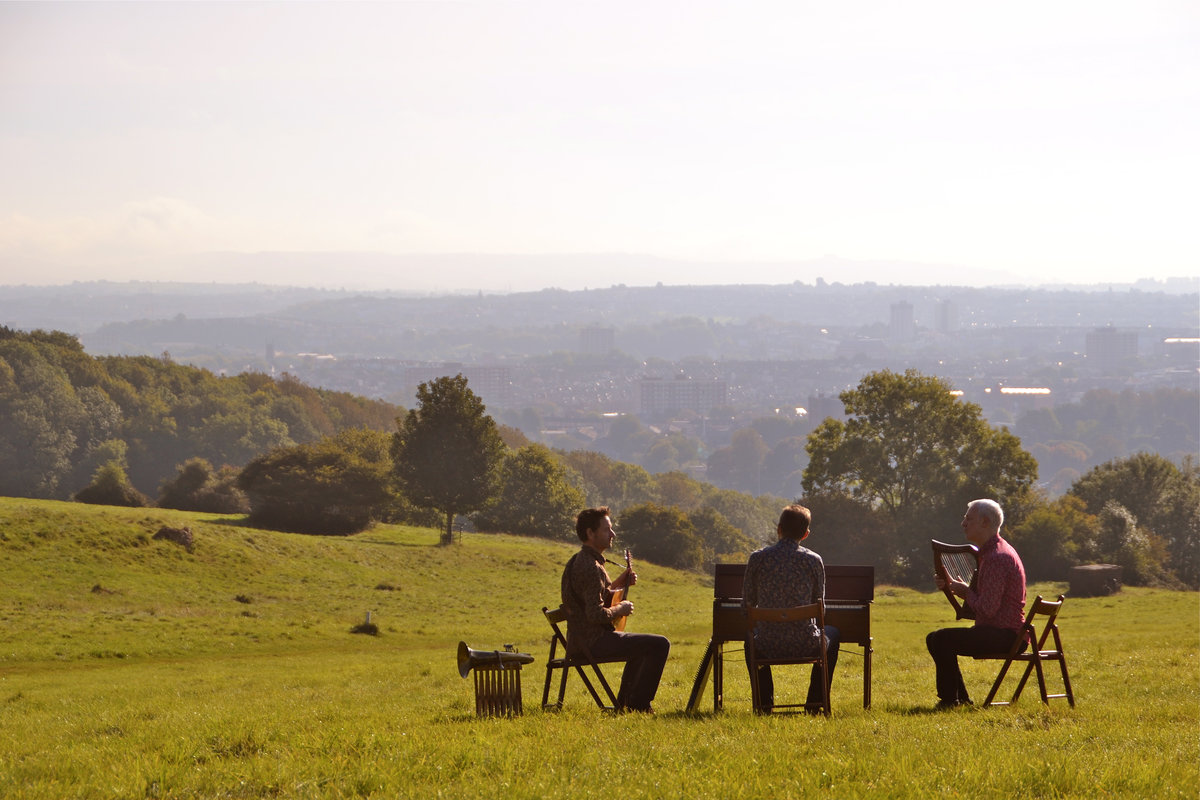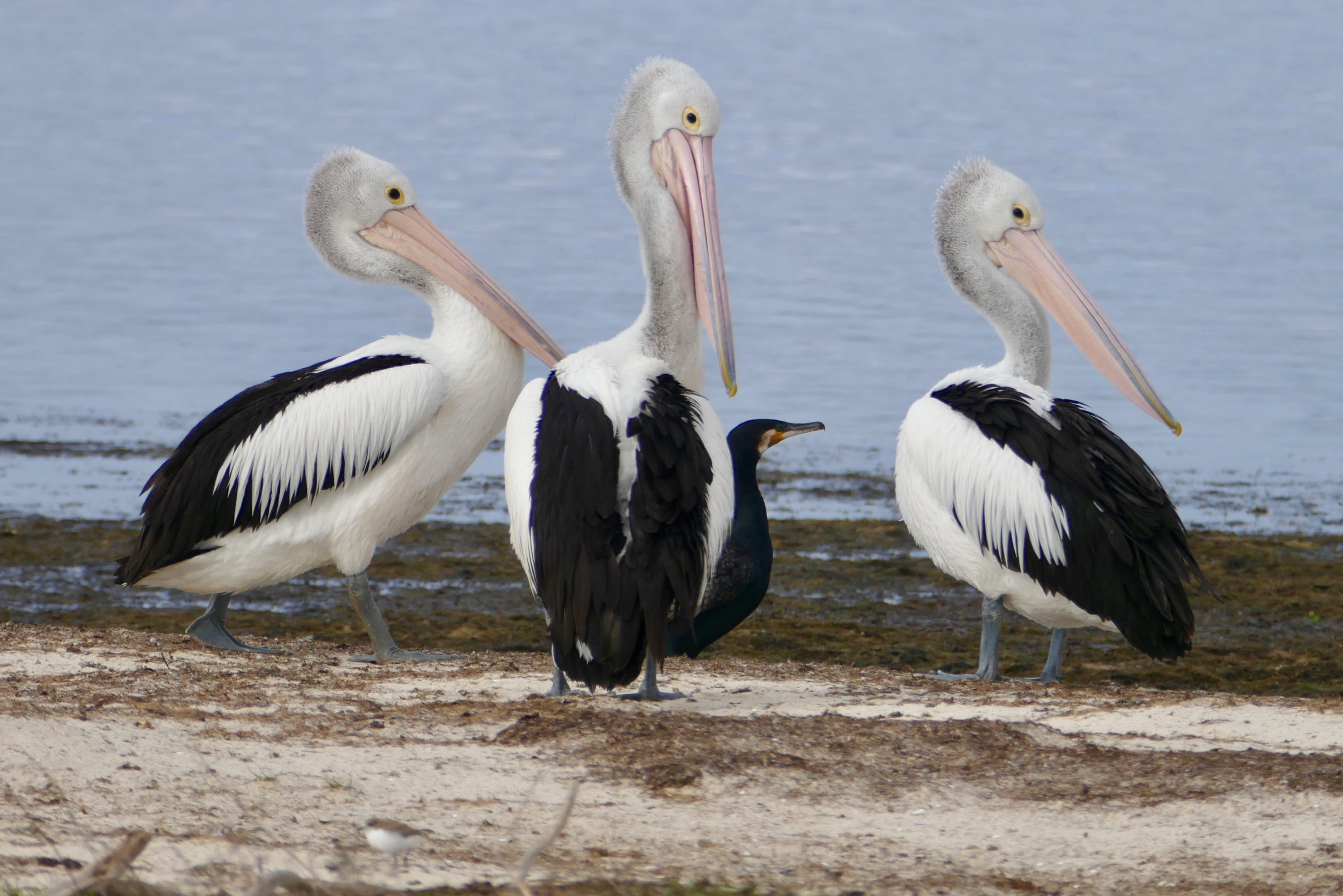You could describe the British trio’s music as “chamber-folk”, the Norwegian tuba virtuoso’s as “chamber-jazz”.
I am wary of hyphenated “chamber” musics; recordings so-described oft prove anaemic, twee, wannabe.
No such problem here: two very different ensembles have each created something singular, beautiful, with spine.

PALIMPSEST
Recorded in June 2015, this is the Bristol-based trio’s third album.
All 21 cuts were composed by Alex Vann or Pete Judge, the music beautifully recorded, “live”.
The shortest piece occupies 32 seconds, the longest a little more than 4 minutes – this is an acoustic instrumental set of precise, concise originals.
On 5 pieces the Whale has 1 or 2 guests – violinist Maarja Nutt and/or cellist James Gow.
The music inclines to “English, pastoral”, is melodious, spacious, considered but not stiff, gentle but not widdly.
Most pieces evoke a specific English or Welsh place and/or moment and/or person or notion.
Pete Judge’s Brute Angels is named after stones carved by members of the Brute family of stonemasons, in the Black Mountains of Wales; it also alludes to an observation on human nature made by Pascal. (click here for full details of what is behind each piece)
On this album the Whalers play 20 instruments.
Paul Bradley is primarily an acoustic guitarist.
Pete Judge is most especially an excellent, decidedly-English, not-remotely-jazzy player (in the Three Cane Whale context; in some others, he is a jazz musician) of various members of the trumpet family.
Alex Vann – who you may have previously heard via his membership of Spiro – is (here, at least) primarily a not-remotely-bluegrass mandolinist.
As a trio, they are almost a genre to themselves…most certainly not yet another tedious “footnote to Penguin Cafe”.
Clearly, their key influences include “early” and “classical, chamber” and English “folk” musics,.
There is reason to believe they like English hymns and that they have listened to some “jazz” composer-arrangers…but nothing here sounds like a pale shadow of any one of the aforementioned, nor a pastiche of various of them.
It is utterly lovely, very easy to listen to, but not “easy listening” in the “supermarket-soundtrack” or “lift” sense.
The trio lacks an Australian distributor, but their (now, 4) albums are easily obtained via their website, which also includes several good videos.
The Whale’s raison d’être and modus operandi are discussed in a 2016 interview.
Downloads are available here

THE ROC
Daniel Herskedal is far from the first tuba ace to take his instrument into “unfamiliar” territory, to deploy “extended” techniques, to draw on study of non-Western musics, to embrace both “classical” and “jazz”, to lead a “non-standard” ensemble, to devote an entire album to his own compositions, etc etc.
However, I have not heard any other “bottom-end brass wizard” do all of the above to such consistently good effect.
Yes, the 35 year Norwegian’s command of his instruments (he also plays bass trumpet) does strain belief, yes, you will likely find The Roc novel and surprising.
However, what makes him worth your attention is his sheer musicality, as both player and composer-arranger.
Herskedal’s “chops” are never flaunted – they always serve the music, often discreetly – and his compositions richly repay multiple hearings.
The album’s trailer will give you a glimpse – just a glimpse – and will also identify his excellent, highly resourceful quintet’s pianist, violist, cellist/octobassist and percussionist.
The trailer features the album’s opener, The Seeds of Language.
This post’s other two videos are complete, “live” versions of other pieces from The Roc; the first is very spacious, the second much more urgent.
In a recent interview Herskedal said, I don’t see myself as a tuba player. In general terms, I see myself as a musician, and tuba is the tool I can use to spread my voice.
That, I think, is a key to his musical success; even the wonderful Michel Godard sometimes sounds a little strained, a little too, “see what I can do with a tuba or serpent!”
Herskedal is hardly less audacious, but the Norwegian always sounds natural, organic, neither “on trend”, nor reacting against trends and expectations
The Roc is one of my favourite 2017 releases.
I am sure it will sound just as fresh in 2037.
It has an Australian distributor.
Footnote
I took the photo atop this post on July 30 at Pelican Point – an internationally significant sanctuary on the shores of Perth’s Swan River.
Pelican Point is a short walk away from the University of WA, and an even shorter walk from Royal Perth Yacht Club.

this is a post that I find that I return to listen through – it all seems to have a place in my world